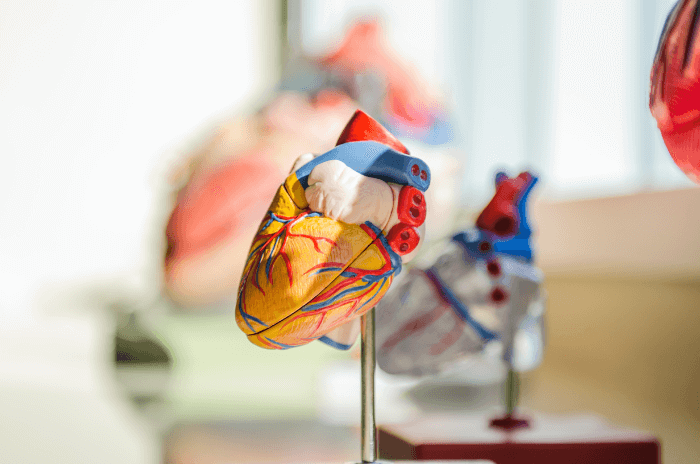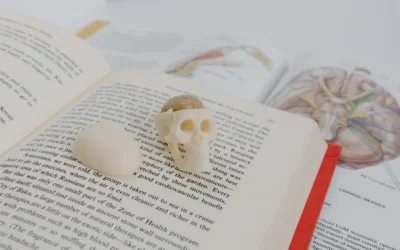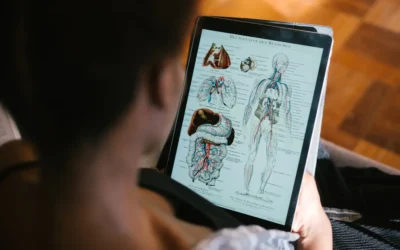What to Expect and How to Prepare
Whether you’ve just made the decision that you want to pursue a career in medicine or you just got accepted into medical school (congratulations!), you’re probably wondering what life as a medical student is like. What is it really like to study medicine?
How can you stand out, both for the admissions procedure and once you’ve been accepted? Can you really “prepare” for med school?
How to stand out for med school
It’s more or less a given that everyone in med school had good grades after high school, but how can you distinguish yourself from the high-achieving masses? One major way of standing out in the admissions process is to get involved in useful extracurricular activities. These show you’re a well-rounded candidate both in and outside the classroom, and give you plenty of additional skills. In addition to that, your personal statement is your chance to show your passion and dedication.
For more ideas on which extracurricular activities to get involved in, read our guide on the most useful activities for students preparing an application to medical schools.

You’ve been accepted: now what?
Congratulations! You know which med school you’ll be going to, and now you have the summer left to prepare. Before we continue onto how to prepare, it’s important to note: this is the perfect time to relax and enjoy doing things that you like. Soon enough you’ll be busy with the hustle and bustle of being a med student. So use the summer as a chance to chill and spend time with the people you may not be seeing for a while once your studies begin.
That being said, here’s a useful rundown of what to expect from med school and how to prepare for it.
How much will I have to study?
Medical students usually need to study around 30 hours a week. It really is a full time study, but if you’re efficient and plan ahead it’s easy to make time for other things. Spend some time reflecting on how you studied for your high school diploma (e.g. A levels) – what worked? What didn’t? Keep in mind that the volume of work is much higher in med school, so be prepared to start the working day early. Much of your study time will be spent in labs, particularly at the beginning of med school.
Depending on the college, most med schools will go easy in the first few weeks to allow you time to settle into student life and your new surroundings. But the pace picks up quickly and it can be easy to fall behind – the earlier you start the easier it is to keep up.
While your primary commitment might be to your studies, it’s vital that you don’t neglect your social life. This is nothing to stress about, because student communities tend to be tight-knit and accessible. With organised events every few weeks and usually more than two days off, you’ll quickly feel at home spending time with your peers. Try joining a club or society early on, or becoming one of the year representatives. Joining groups is a great way to meet people with similar interests, but beware that your timetable doesn’t get too filled up. Time to relax and rest is critical for your own resilience and health.

What can you do in the summer leading up to uni?
Enjoy this opportunity to relax and do your own thing! Med school is where you’ll be immersed into the world of medicine, whether you prepare beforehand or not. However, if you’re looking for a productive activity, there are many amazing ways to spend your summer vacation – including a summer course like Oxford Scholastica’s Medicine summer school.
If you do want to invest in preparation, ensure that your work isn’t futile. Check what you’ll be studying in the first few weeks and give yourself a brief overview. But there really isn’t much point trying to learn things you won’t even need to know. We don’t recommend picking a random anatomy book and flicking through it!
Instead, here are some alternative suggestions:
-
Watch medical videos and familiarise yourself with the terminology
In the first few months of med school you’ll be trying to adapt to the new words that lecturers throw around casually, expecting you to know them. Which direction is cranial and which is caudal? What’s the bioavailability of a drug? What’s the difference between a ligament and a tendon, or a hormone and a neurotransmitter? Getting to grips with medical terminology will give you a head start and decrease confusion. It’s easy to feel overwhelmed with all these new words flying about.
-
Start learning Anatomy
An extremely interesting discipline, but it’s one of the heaviest subjects in terms of workload over the first few years of any medical degree. To smooth out your transition in a fun and relaxed way, consider an anatomy colouring book (study while relieving stress!) or flash cards to familiarise yourself with the human body before you embark on your long journey to master it.
-
Read
Yes, reading for leisure! Pick anything you enjoy, and maybe a medicine-related article or book or two. This will keep your brain ticking in the right direction. If you need some help knowing whether to start, check out this list of 7 books every medical student should read.
-
Don’t buy all the textbooks!
There’s no real reason to buy all the recommended textbooks before you start. Especially early on, you’ll have plenty of material given to you in the form of lecture notes, tutorials, practice questions and more. In addition, most universities will give you access to free copies of textbooks online as part of their online portal. Once you’ve used these and decided which textbooks work best for you, it’s easier to decide which books you want to buy a hard copy of (especially important if you prefer to study from a book than a screen!). Remember, medicine is an ever-changing landscape, so don’t rely on old editions of books. Likewise, don’t buy books now that you intend to use in a few years.
-
Check what medical equipment you need
Most universities will require you to have your own stethoscope, lab coat, or other items for the duration of your studies. Find out if you need them, do your research, and go ahead. Getting your first stethoscope is an exciting moment!
Overall, keep in mind that personal motivation is crucial. As a medical student, no one will be checking how much work you do. Interactive classes are replaced by lectures, topics aren’t repeated, and it’s all up to you to determine how you study and how much you study. Spend some time reflecting on why you want to pursue a career in medicine, and make sure your goals are clear in your head. Feeling motivated? Good, you’ll need it!
Lastly…get excited! As most doctors will tell you, life as a med student will be some of the best years – so enjoy them!
Next Steps
- Still not sure if medicine is the right course for you? Read our blog piece ‘Why Study Medicine?‘
- Read the BMJ’s student views on how to prepare for life as a med student
- Find out about Oxford Scholastica’s Mock Clinic Medicine Challenge – a highlight of our Medicine Summer School for ages 12-18




